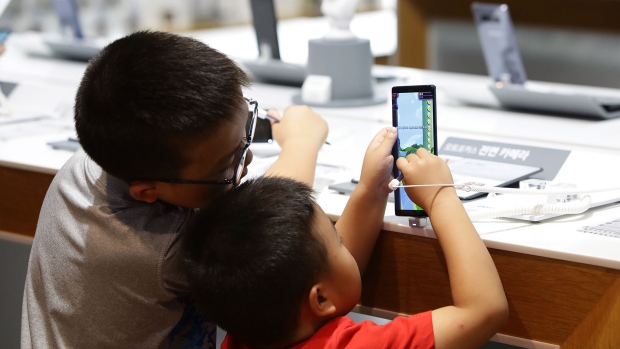Dec 9, 2018
Screen Time Changes Structure of Kids’ Brains, ‘60 Minutes’ Says
, Bloomberg News

(Bloomberg) -- Smartphones, tablets and video games are physically changing the brains of adolescents, early results from an ongoing $300 million study funded by the National Institute of Health have shown, according to a report by “60 Minutes.”
Scientists will follow more than 11,000 nine- to 10-year-olds for a decade to see how childhood experiences impact the brain and affect emotional development and mental health. The first bits of data suggest that the onslaught of tech screens has been transformative for young people -- and maybe not for the better.
In brain scans of 4,500 children, daily screen usage of more than seven hours showed premature thinning of the brain cortex, the outermost layer that processes information from the physical world. Though the difference was significant from participants who spent less screen time, NIH study director Gaya Dowling cautioned against drawing a conclusion.
“We don’t know if it’s being caused by the screen time. We don’t know if it’s a bad thing,”Dowling said, according to an advance transcript provided by CBS network. “It won’t be until we follow them over time that we will see if there are outcomes that are associated with the differences that we’re seeing in this single snapshot.”
Early results from the study, called Adolescent Brain Cognitive Development (ABCD), have determined that children who spend more than two hours of daily screen time score lower on thinking and language tests. A major data release is scheduled for early 2019.
To contact the reporter on this story: Lisa Lee in New York at llee299@bloomberg.net
To contact the editors responsible for this story: James Ludden at jludden@bloomberg.net, Virginia Van Natta, Ros Krasny
©2018 Bloomberg L.P.





